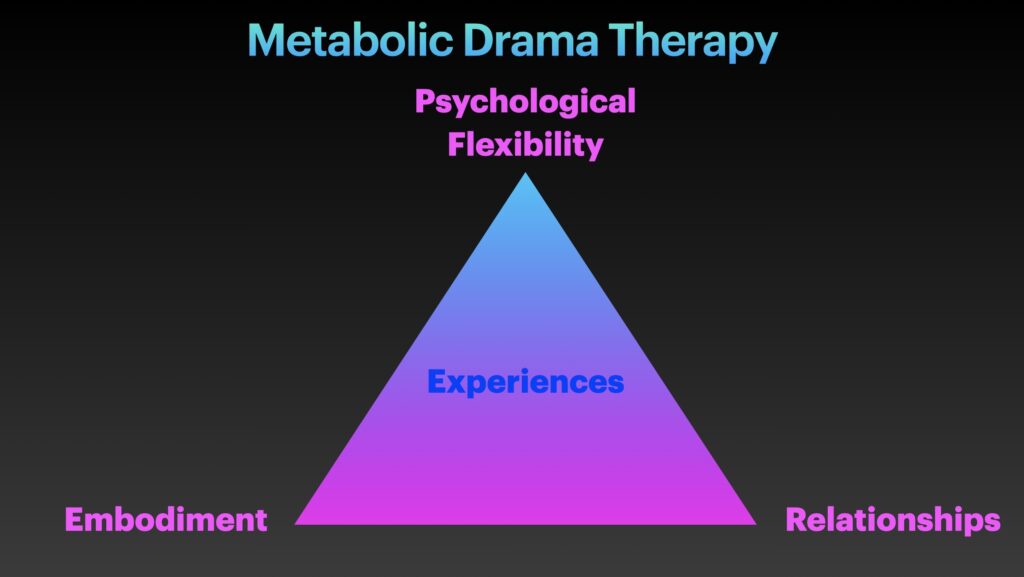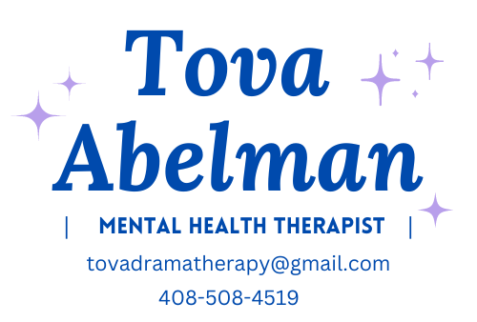
I am trained in drama therapy, which is largely a relational and process-oriented approach to exploring and grappling with our human experiences. Drama therapy is an expansive modality incorporating embodiment, theatre techniques like improvisation, externalization of inner experiences, story, role play, narrative, metaphor, symbol, creativity, parts of self, inner roles, play, flexibility, exploration, and more in the service of achieving a client’s therapeutic goals. It is creative and flexible. For example, my Card Play process is rooted in drama therapy.
My approach to drama therapy often integrates elements of other clinical modalities such as ACT, cognitive behavioral approaches, DBT, psychodynamic psychotherapy, attachment theory, other expressive arts, and parts work within an overall holistic framework that recognizes bidirectionally between physical and mental health. Here is a portion of my capstone paper on Metabolic Drama Therapy
One strength of drama therapy is how relational it is. Drama therapy provides a way to explore relationships to others and to ourselves. As humans are a social species, forming healthy relationships is essential for wellness and wellbeing. Drama therapy can facilitate addressing and exploring relationship issues in couples therapy.
The North American Drama Therapy Association is a resource for learning more about drama therapy.
